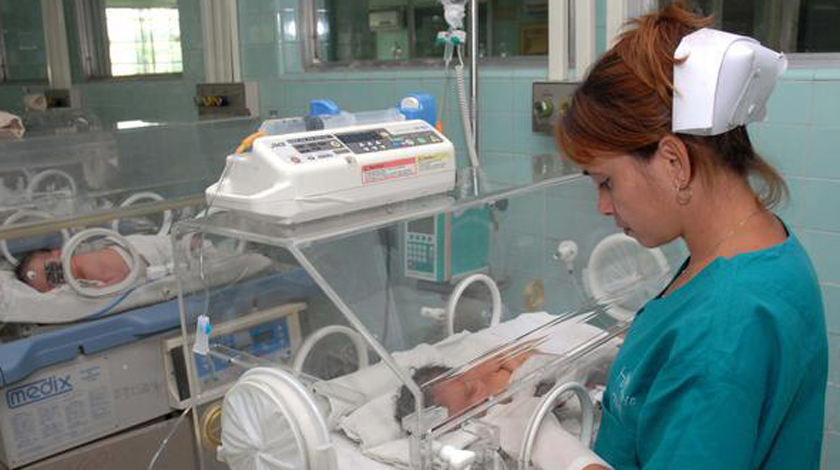New protocol standardizes care for newborns in Holguín
- Written by Redacción ¡ahora!
- Published in Health
- Hits: 1655

A new protocol to standardize care for newborns with esophageal atresia in the province of Holguín stands out among the contributions of the Octavio de la Concepción Pedraja Pediatric Hospital, a reference center for the survival of this vulnerable population group.
In this institution, newborns between zero and five days old receive specialized help, who undergo surgery to correct congenital malformations in the first hours of life.
Ileana Cruz González, head of the nursing department, said to the ACN that these infants require highly complex management, involving a multidisciplinary group of specialists; however, in the medical literature nursing care is described general.
She explained that the main contribution of the research is the standardization of a post-surgical follow-up protocol, according to each of the existing types of this disease, including esophageal atresia; with distal tracheoesophageal fistula; with proximal tracheoesophageal fistula; with double fistula and H-shaped without atretic segment.
She added that the application of this method reduces the hospital stay by approximately 20 days, depending on the assessments made by the medical team and the evolution of each infant.
Cruz González, also a PhD in Nursing Sciences and a Master's in Comprehensive Child Care, highlighted that the protocol is already implemented in the provinces from Villa Clara to Guantánamo and coordination is being carried out to extend it to the western zone.
In addition, she pointed out that at the request of the Maternal and Child Care Program, a group of practical guides were prepared for the management of surgical newborns, which are being evaluated by the National Standardization Committee for their use in improving survival in specialties such as pediatric surgery.
Esophageal atresia is a malformation characterized by incorrect development of the esophagus and occurs in one in 40,000 newborns, according to the World Health Organization website.
In Cuba there is a specialized program for monitoring this pathology, which includes the Holguín Regional Center for Neonatal Surgery, with 20 years of experience in this field and a survival rate of more than 95 percent. (Source: ACN)
